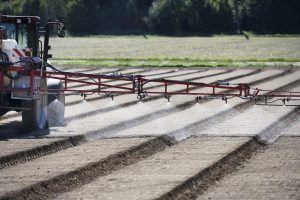
Plant protection products are prohibited in Switzerland. However, imported vegetables may still contain traces of pesticides. Farmers criticize unequal treatment.
Swiss farmers and consumers face a new problem. After 12 toxic pesticides were banned in the course of the pesticide scandal last year, it is now clear that the bans are full of holes.
Pesticide residues can still be found on imported food, while they are banned on domestic products. The Federal Food Safety Agency confirms this to the “SonntagsZeitung” in the case of the controversial pesticide chlorothalonil, which has been banned since December: “Food from third countries where chlorothalonil is not prohibited may still contain traces of chlorothalonil”.
«Wave of pesticide imports»
This also applies to the other pesticides, which have been withdrawn in the past months, says a BLV spokeswoman. Farmer President Markus Ritter sharply criticizes the unequal treatment of foreign products: “It is not acceptable that fruits and vegetables with residues of pesticides banned in Switzerland can be imported.”
This distorts the competition and “destroys our agriculture”. And: without a declaration, you are deceiving consumers. For Ritter, it is clear where the new competitive disadvantage of Swiss farmers is leading: “With today’s practice there is a wave of pesticide imports.”
The Hidden Secrets Behind Your Veggies & FruitsThe Hidden Secrets Behind Your Veggies & Fruits
Quoted by 20 minutes-online Swiss News
